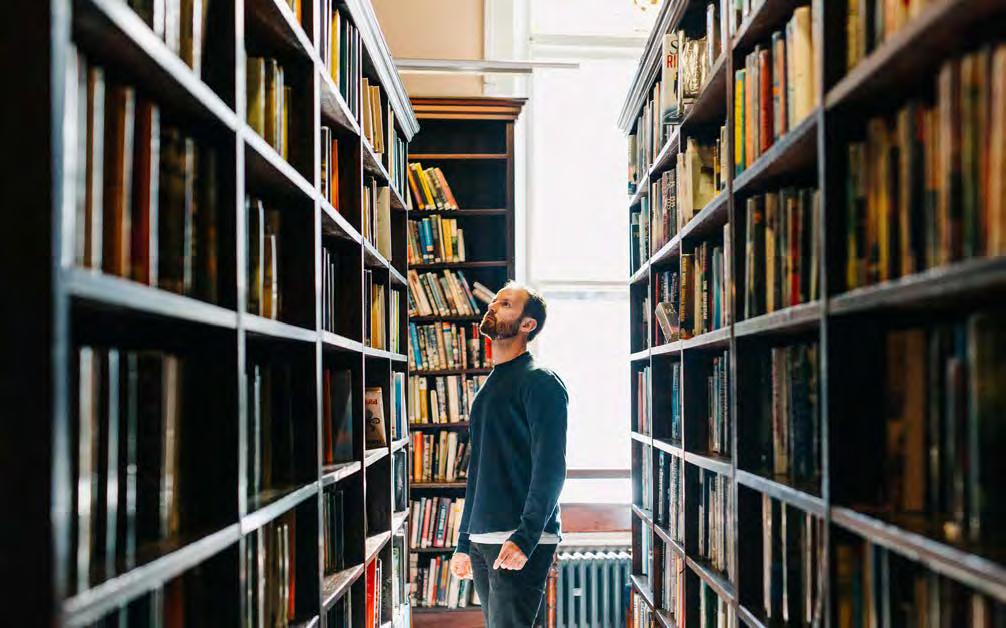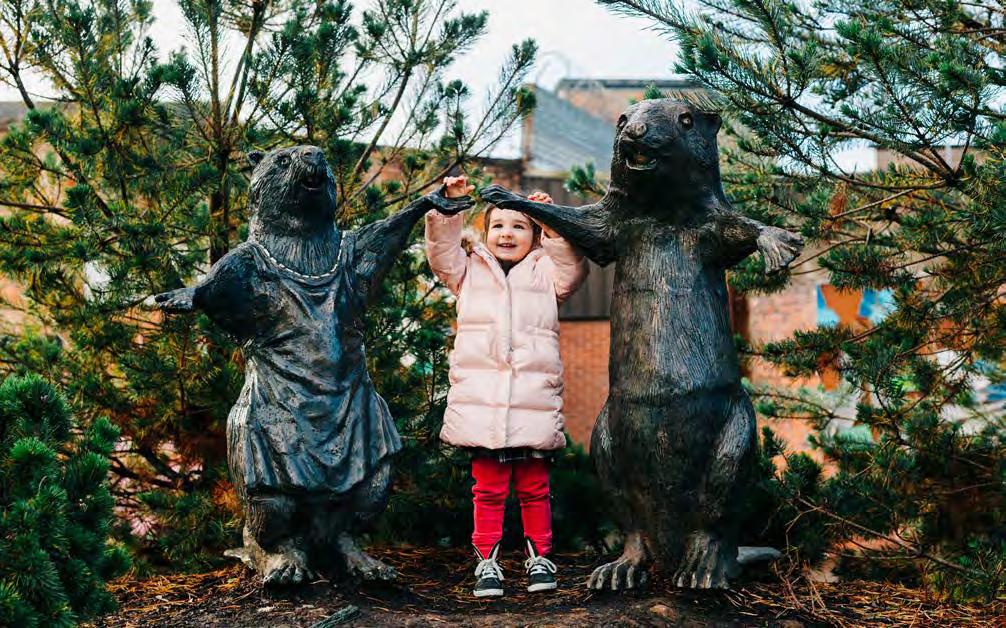
2 minute read
Flip-it: From production-led to
from Museum Ireland, Vol. 27. Widdis, B. (Ed.). Irish Museums Association, Dublin (2021)
by irishmuseums
MUSEUM IRELAND 2020
Flip-it: From production-led to audience-driven
Advertisement
Fiona Bell
Audience development has a bad reputation, or at best, suffers from an image problem. We say the words, and sometimes point to a beautifully worded and formatted plan that has sat on a shelf since the last time a funder asked for it. But it is not an activity or a project, and nor is it a series of time-bound actions that, if blindly followed, will magically produce those longed-for audiences.
A shift in mindset
By habitually bringing great ideas to life before thinking about who might want to take part, we cannot grow our audiences. We need to put people first, centring on and responding creatively to their needs and behaviours, before curating
Spoiler: it doesn’t work like that. Sorry. Browsing the stacks at the Linen Hall Library, Belfast.
Credit: Thrive
This shift in mindset entails a radical re-imagining of how we do things. Audience development is about building relationships, requiring dedication and time. A useful analogy is that of progression from a first date to a marriage proposal; it is a comparable process of progressive learning about a partner’s character and habits, of being flexible to their needs, and of long-term commitment.
Communication, Respect and Trust
As in any relationship, audience development depends on good communication, respect and trust. It is an intelligent conversation with a good friend, in which, rather than talking about ourselves, we ask about their life, how they are getting on, and what they’ve been doing. This is a dialogue in which both parties talk, and both parties listen. about how to behave, insisting that people stifle coughs or not laugh too loudly, preventing them from carrying their coffee through the door – are unwelcoming and not welcomed and will invariably damage our relationships with audiences.
Audience development isn’t rocket science. Rather, it is that thing we were all told as children: ‘treat people as you would like to be treated’. And that is how we will be able to flip it.
Fiona Bell is Client Relationships Director with Thrive – a Northern Ireland-based agency that supports arts, culture and heritage organisations to understand and grow their audiences.
Professional cultural institutions treat people as equals, believing in their creativity, interests, talents, opinions and tastes. They outwardly display trust in people, taking pride in being friendly and respecting them as adults – irrespective of their age. Negative institutional behaviours – for example, issuing instructions C.S. Lewis Square, Belfast.
Credit: Thrive










